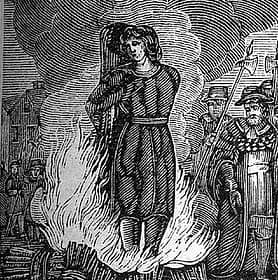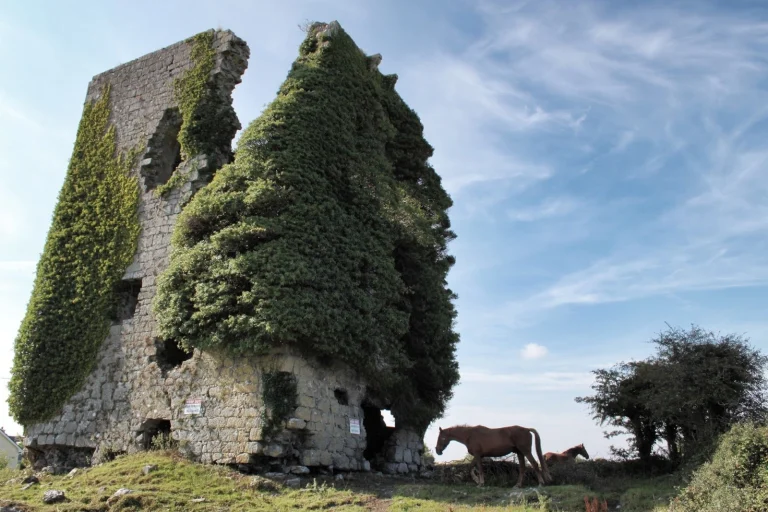

DUBLINTIMEMACHINE: Today, in 1324 CE, a maidservant named Petronilla de Meath was executed in Kilkenny, becoming the first recorded person in Ireland to be burned at the stake for witchcraft and heresy. She was closely connected to Lady Alice Kyteler, her employer, a wealthy woman accused of sorcery after her fourth husband’s suspicious death.
Alice’s stepchildren and others accused her of using magic to harm her husbands and gain wealth. Bishop Richard de Ledrede, eager to root out perceived heresy, took on the case, seeing it as a way to reinforce church authority.
When Alice managed to evade arrest, Bishop Ledrede turned his attention to her servants, particularly Petronilla. Under intense torture, Petronilla was forced to confess to a range of charges, including participating in rituals, using magic, and aiding Alice in her supposed sorcery.
These confessions were likely fabricated under duress, as they included claims of supernatural acts aimed at harming others and invoking demons. With Alice out of reach, the authorities used Petronilla’s coerced admissions to justify severe punishment and send a warning about the consequences of heresy.
In 1324, Petronilla was condemned and burned at the stake, a punishment designed to publicly showcase the Church’s stance against witchcraft. Her tragic death highlights how witchcraft accusations were often directed at vulnerable women, particularly those with limited means to defend themselves.





